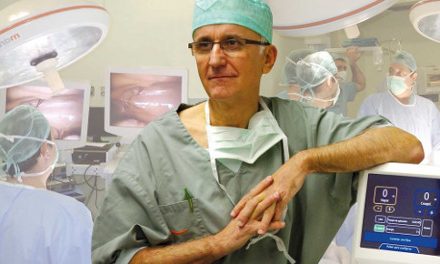Francisco López Muñoz reflects on the scientific experiments that were carried out in various Nazi concentration camps

Dr. Francisco López
Francisco López Muñoz, professor of Pharmacology and director of the International Doctoral School of the Camilo José Cela University and full academician of the Royal European Academy of Doctors-Barcelona 1914 (RAED), published on February 7 in the digital newspaper “The Conversation” the article “Cuando la ciencia trabaja al servicio del mal” (When science works at the service of evil), where he reflects on the scientific experiments that were conducted in various concentration camps under the control of Nazi Germany, as demonstrated in the judgment of doctors framed in the Nuremberg Judgments after the end of the Second World War. There were reprehensible investigations with humans, such as freezing experiments, inoculation of tubercle bacilli or limb amputations. But they also took place in the specific field of pharmacology, much less known, which the academician has studied in depth.
“The rise of eugenic currents in central Europe at the beginning of the 20th century paved the way for the Nazi government to launch a policy of racial hygiene with disastrous political, social and scientific consequences that reached the point of a clear biological anti-Semitism, as Karl Binding and Alfred Hoche argued: ‘Jews are very similar to humans, but they are the result of another evolution'”, explains López Muñoz. The academician also refers to the Aktion T4 program, which marked the beginning of the mass extermination of patients with “deficiencies” or mental pathologies.

Block 10 of the Auschwitz concentration camp, where medical experiments with prisoners were carried out
With them they experienced the effect of sulphonamides in gas gangrene induced, chemical sterilization with formalin, the use of vaccines and other drugs in subjects intentionally infected with malaria, the effects of methamphetamine in extreme exercises, the anaesthetic properties of hexobarbital and chloral hydrate in amputations or the effect of barbiturates and high doses of mescaline in brainwashing studies.
“How is it possible that up to 45% of German doctors came to join the Nazi party, without any other profession reaching these percentages of political affiliation?” -López Muñoz asks-. “The answer is difficult. Many doctors argued that the standards were designed for the benefit of the nation and not the patient, and invoked concepts as misleading as those of major cause or sacred mission. Some of them believed that everything was justified by science, even the inhuman experiments carried out in the fields, while others considered themselves as patriots and their actions explained them as actions of war. They were also sickly imbued by the perverse Nazi philosophy, and others, of a more ambitious nature, were involved in these activities as a way of promoting their professional and academic careers”.
From all this horror and unreason the academician extracts the only positive reading: learning and correction. In fact, after the judgment of the Nazi doctors, the first international code of ethics for research with human beings was enacted, the Nuremberg Code, under the Hippocratic precept “primun non nocere”, whose influence on the human rights and remains unchanged in our days.





